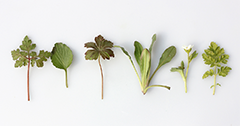A nod to herbal melatonin!

Ideally, we should go to bed pleasantly tired, ready to nod off within 10 minutes or so of your head hitting the pillow and enjoy a sound solid night’s sleep. Sadly, many do not experience this gentle flow from awakeness to deep sleep.
There are many supplements and herbs to resolve this most frustrating and exhausting situation. Melatonin has recently been extracted from plants such as Alfalfa (Medicago sativa), to regulate circadian rhythm disruptions. In the past, melatonin supplements contained melatonin derived from animal or synthetic sources.
Phytomelatonin (plant derived) may be a superior form as it is plant based, not animal derived, so it is vegan and vegetarian friendly. It certainly does not contain chemical by-products from chemical synthesis of melatonin and it acts in a sustained release manner which more closely mimics the body’s natural production of melatonin overnight.
Melatonin taken as dietary supplement helps to improve sleep quality, sleep-wake rhythms, circadian rhythm disruption and memory.
As well as taking herbal melatonin, other measures need to be in place.
Melatonin, the main sleep hormone also acts as an antioxidant within the central nervous system (CNS). However exposure to electromagnetic fields (EMF) reduces the activity of the pineal gland and suppresses melatonin production. Suppression of melatonin can also lead to sleep disorders and depression. The key note to take away is reduce evening screen time and to take an antioxidant to protect against EMF-induced oxidative damage.
Other specific strategies include, physical exercise in the morning, reducing caffeine intake, and implementing bedtime habits, such as a warm bath, soothing music, candles and gentle yoga and meditation.
Taking 300mg elemental magnesium nightly also is most helpful.
If insomnia or sleep disruption has been a chronic, long-term problem, you need to break the cycle. This frequently results in insomnia becoming a habitual behaviour, which so often results in fear of going to bed.
Implementing the above measures and taking a herbal sedative containing Medicago satvia, with Ziziphus, Passionflower and Californian poppy religiously for a least two weeks should result in bedtime sleepiness and a refreshed awakening.
